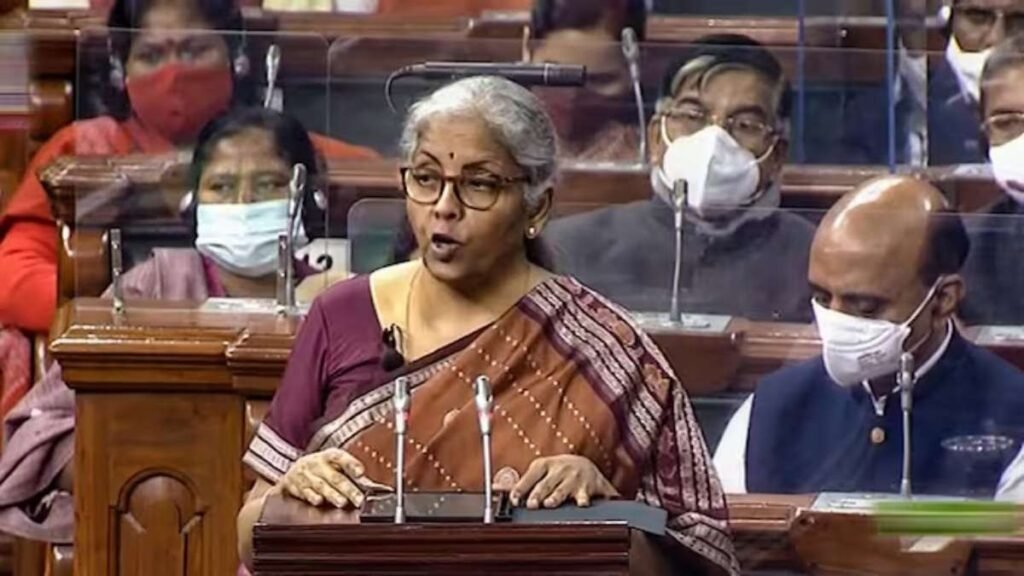Budget 2024: The Economic Survey imparts a meticulous compendium of quantitative data and intricate analysis spanning myriad sectors of the economy. It encompasses statistics on employment indices, Gross Domestic Product (GDP) expansion, inflationary trends, and budgetary shortfall.

Budget 2024: On Monday, July 22, Finance Minister Nirmala Sitharaman is set to present the Economic Survey in Parliament, one day before the unveiling of the Union Budget. This survey will act as an evaluative document of the economy, elucidating its recent performance and offering projections for future growth.
The Economic Survey delivers an exhaustive depiction of the current economic landscape, its future potential, and the policy hurdles ahead. Crafted by a team under the guidance of Chief Economic Adviser V Anantha Nageswaran, as noted by news agency IANS, the Survey furnishes detailed statistical information and analysis across various economic sectors. This includes data on employment rates, GDP growth, inflation trends, and the budget deficit.
IMF raises India’s GDP forecast to 7% for 2024-25
India has maintained its status as the world’s fastest-growing economy, with the Economic Survey being presented amidst the IMF’s recent upward revision of the country’s economic growth forecast for FY25 to 7 percent, up from the 6.8 percent projected in April.
“The forecast for growth in India has also been revised upward, to 7 percent, this year, reflecting carryover from upward revisions to growth in 2023 and improved prospects for private consumption, particularly in rural areas,” the IMF stated.
In June, the Reserve Bank of India (RBI) adjusted its growth forecast to 7.2 percent from 7 percent. The RBI anticipates India moving towards an 8 percent GDP growth trajectory on a sustained basis, propelled by structural economic reforms such as the Goods and Services Tax (GST). “If you look at the average growth India recorded over the three years, the average comes to 8.3 percent, and for the current year, we have projected 7.2 percent growth,” RBI Governor Shaktikanta Das said.
He also highlighted that the Indian economy contributed 18.5 percent to global growth in the last financial year 2023-24, a significant achievement compared to 7 or 8 years ago. He added that the IMF projects this growth will increase.
What is an Economic Survey?
The Economic Survey is customarily unveiled a day before the Union Budget, presented in Parliament by the Finance Minister. This critical annual document from the Finance Ministry is often regarded as a reflection of the nation’s economic health. It offers an exhaustive review of the country’s economic progress over the preceding fiscal year, shedding light on the nation’s economic performance and serving as a pivotal basis for the forthcoming budget. It stands as a primary medium for the government to communicate the economic status of the country.
The Economic Survey is divided into two segments. The first part outlines the current state of the Indian economy, while the second part provides detailed information on key economic indicators.
What is in the Economy Survey?
The Economic Survey provides a thorough examination of the execution of various government schemes. It emphasizes economic growth trends, detailing investments across different sectors, and presents key economic indicators along with sector-wise economic trends. This report aims to evaluate the nation’s economic condition and offer insights into the economy’s direction for the upcoming fiscal year. It includes major economic figures and sector-specific trends, serving as an independent reference for understanding the government’s economic policies and their impacts.
Who prepares the Economic Survey?
The Economic Survey is crafted by the Economic Division of the Ministry of Finance, reflecting the perspective of the Chief Economic Adviser. Before its release, the survey must be approved by the Finance Minister. The Finance Minister presents the Economic Survey in Parliament, after which the Chief Economic Adviser provides an overview of the current financial year.




